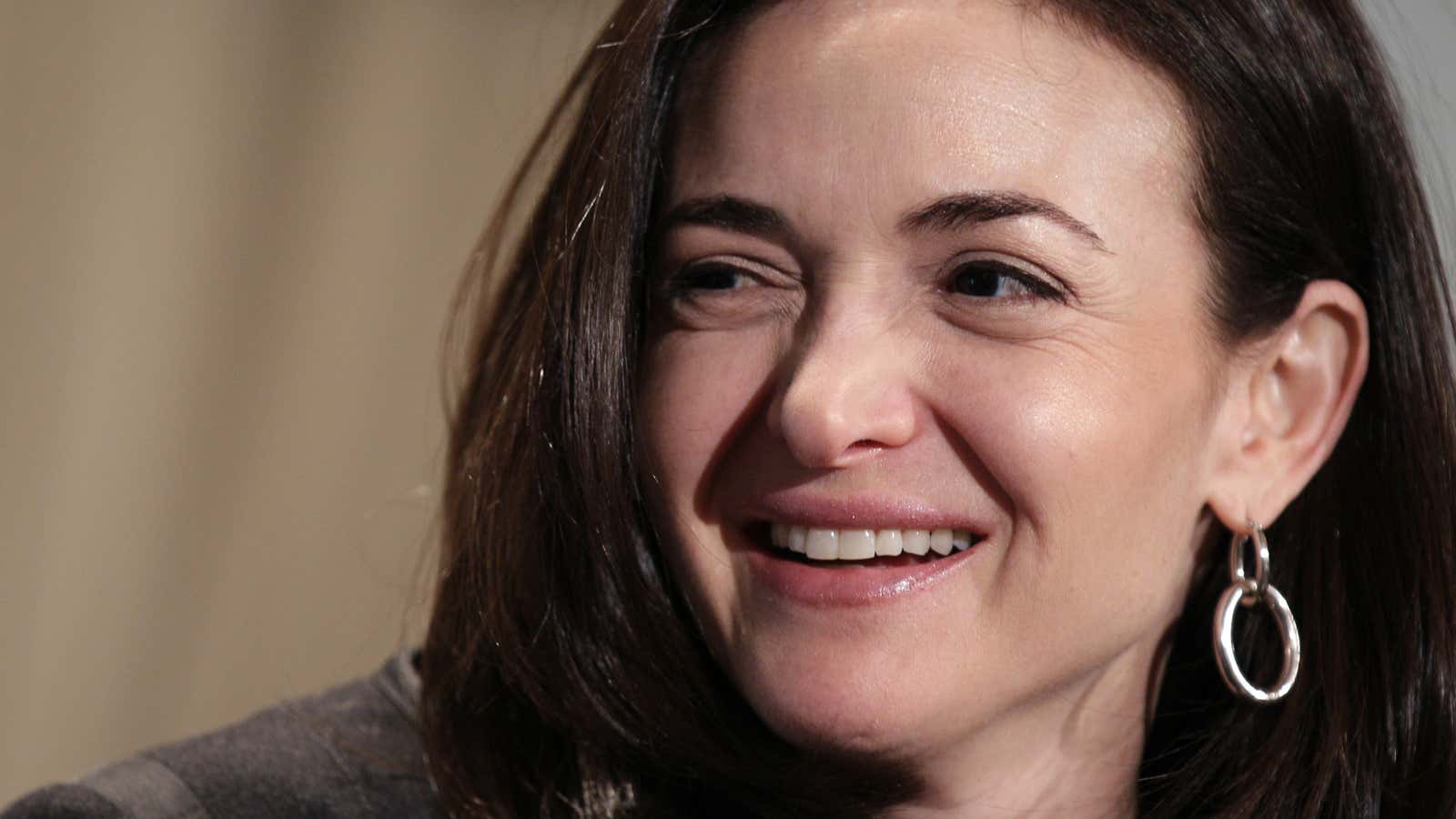“You are not born with a fixed amount of resilience. Like a muscle, you can build it up, draw on it when you need it. In that process you will figure out who you really are—and you just might become the very best version of yourself.”
This was the advice Lean In author Sheryl Sandberg offered to graduating students at the University of California, Berkeley in a stirring commencement speech on Saturday (May 14).
Drawing on the theme of resilience in the face of struggle and loss, Facebook’s chief operating officer spoke movingly about the sudden death of her husband Dave Goldberg on vacation in Mexico last year. It was the first time Sandberg had spoken publicly about the loss.
Dave’s death changed me in very profound ways. I learned about the depths of sadness and the brutality of loss. But I also learned that when life sucks you under, you can kick against the bottom, break the surface, and breathe again. I learned that in the face of the void—or in the face of any challenge—you can choose joy and meaning.
“The seeds of resilience are planted in the way we process the negative events in our lives,” Sandberg said, alluding to the work of psychologist Martin Seligman, who identified three “Ps” that people tend to use to explain the things that happen to them: personalization, pervasiveness, and permanence.
Personalization is “the belief that we are at fault,” Sandberg explained. “This is different from taking responsibility, which you should always do. This is the lesson that not everything that happens to us happens because of us.” She noted how her first reaction to Goldberg’s death was to blame herself. “It wasn’t until I learned about the three P’s that I accepted that I could not have prevented his death. His doctors had not identified his coronary artery disease. I was an economics major; how could I have?”
Pervasiveness, the second P, centers on the belief that an event will affect all areas of one’s life. Sandberg alluded to the first meeting she attended after returning to work at Facebook. “All I could think was, ‘What is everyone talking about and how could this possibly matter?’ But then I got drawn into the discussion and for a second—a brief split second—I forgot about death. That brief second helped me see that there were other things in my life that were not awful. My children and I were healthy. My friends and family were so loving and they carried us—quite literally at times.”
Permanence, the last P, refers to a person’s sense that a given circumstance or feeling is everlasting. “For months, no matter what I did, it felt like the crushing grief would always be there,” Sandberg said. ”Instead, we should accept our feelings—but recognize that they will not last forever.”
“It is the greatest irony of my life that losing my husband helped me find deeper gratitude,” she said, concluding that finding gratitude and appreciation were crucial to building resilience. She told the class of 2016 that her New Year’s resolution was to write down “three moments of joy” each night before bed. “This simple practice has changed my life,” she said, “because no matter what happens each day, I go to sleep thinking of something cheerful.”
Last month, eleven days before the anniversary of Dave’s death, I broke down crying to a friend of mine. We were sitting—of all places—on a bathroom floor. I said: “Eleven days. One year ago, he had eleven days left. And we had no idea.” We looked at each other through tears, and asked how we would live if we knew we had eleven days left.
As you graduate, can you ask yourselves to live as if you had eleven days left? I don’t mean blow everything off and party all the time—although tonight is an exception. I mean live with the understanding of how precious every single day would be. How precious every day actually is.
Sandberg’s closing mantra was one that bears repeating for us all: build resilience. “When tragedy or disappointment strike, know that you have the ability to get through absolutely anything.”
Watch the speech in full below:
